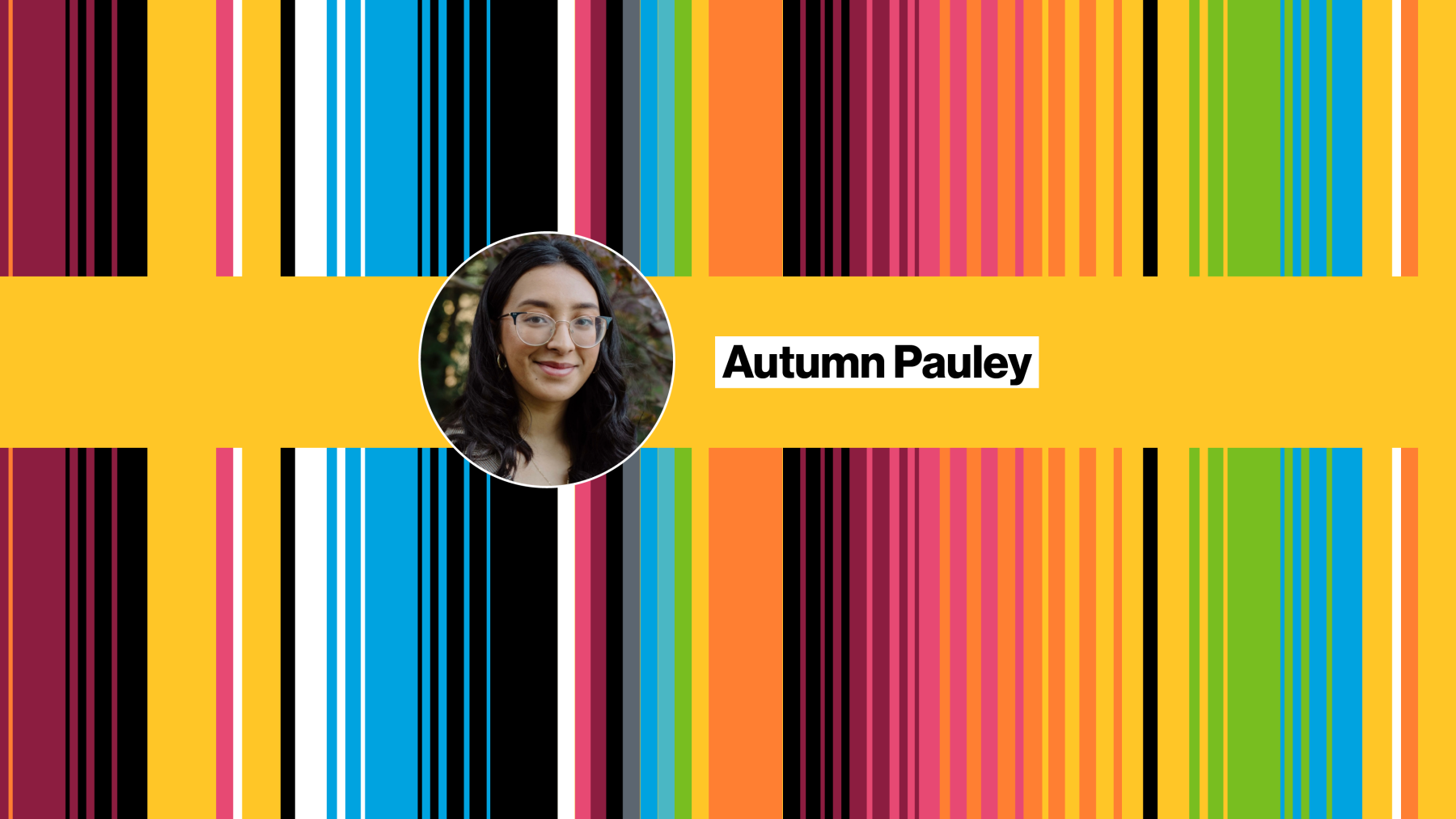
Hispanic Heritage Month Student Spotlight - Autumn Pauley
Inspired by personal research and scholarly articles, Autumn Pauley knew that she wanted to improve the lives of mothers and babies worldwide. She studied how exposure to specific environmental and ecological pressures affects lactation. In this Q&A, this first-year Global Health student details her work as a research assistant with a Mexican and Filipino background, the importance of mental health and future career plans.
Name: Autumn Pauley
Degree: PhD
Program: Global Health
School: School of Human Evolution and Social Change
Please tell us about your academic and professional background.
I am Autumn Pauley, a first-year Global Health PhD student. I received my Bachelor of Science at Iowa State University (ISU). I double majored in Anthropology and International Studies, with a minor in Chinese. During this time, I worked as a research assistant in the paleoecology laboratory at ISU, where I conducted stable isotope analysis of various communities in North America. I am a School of Human Evolution and Social Change graduate student!
What’s something you learned during your professional or academic journey that surprised you or changed your perspective?
In my senior year of undergrad, I learned that 47% of graduate students experience mental health issues. This has informed how I schedule my days and how much I take on to avoid burnout. After reflecting on this statistic, I decided that my mental health is more important than an assignment or attending different events. By taking breaks, I ensure I have quality time to reset.
What types of problems do you work on and why do you think they are important?
My research focuses on understanding how the environment and ecological pressures shape the composition of breast milk by collecting samples of milk from different regions and comparing the nutrient breakdown in each sample. By uncovering these connections, I aim to shed light on how our environment directly influences infant nutrition and human well-being. This understanding could lead to groundbreaking insights that have the potential to revolutionize infant nutrition and impact global health strategies. Eventually, my work aspires to contribute to a healthier, more resilient future for mothers and babies worldwide.
How did you become involved in this type of work? What inspired you?
I became interested in this type of work through doing a bunch of readings across the field and work on lactation stood out to me. This topic could make a difference and would allow me to change my research depending on the life stage I am in.
How have you interacted with the Graduate College? Are you excited about an event, initiative, or funding opportunity?
I am thrilled to have received the Graduate College Enrichment Fellowship, which will allow me to meet with my cohort regularly to discuss issues related to our first year of the PhD program.
What advice do you have for students interested in your field or higher education?
Read different articles and attend as many events as possible to understand the field better. This will allow you to network with others who can help you and build more passion for your research.
What’re your relaxation practices to recharge during the semester?
I enjoy taking my dog, Rigatoni, on walks and calling my family to find out what's happening back home.
What are some of your long-term professional goals?
I am still determining if I want to enter academia or policy, so I will reflect more on different career choices. I want to help mentor other young women who want to go into higher education and I hope to help build confidence in those who may be questioning if they can continue their education.
Learn more about the Graduate College Enrichment Fellowship
More stories from the Graduate Insider

Graduate education is an adventure
About eighteen months ago, I set out on a journey walking the islands of the Dodecanese during a sailing trip in Türkiye and Greece with several friends. Along the way, I found winding paths, timeless villages and breathtaking views of sea and sky. That experience got me thinking about how adventure shows up in other parts of life, especially in learning.

Finding your flow: Managing the graduate writing process
Graduate writing can feel like a marathon—long, demanding, and full of unexpected detours. But as Tristan Rebe, Program Manager for the Graduate Writing Center, reminded students in the Grad15: Managing the Writing Process webinar, writing is not about perfection—it’s about progress. “The best dissertation is a done dissertation,” Rebe said, quoting Robert Frost: the best way out is through.
